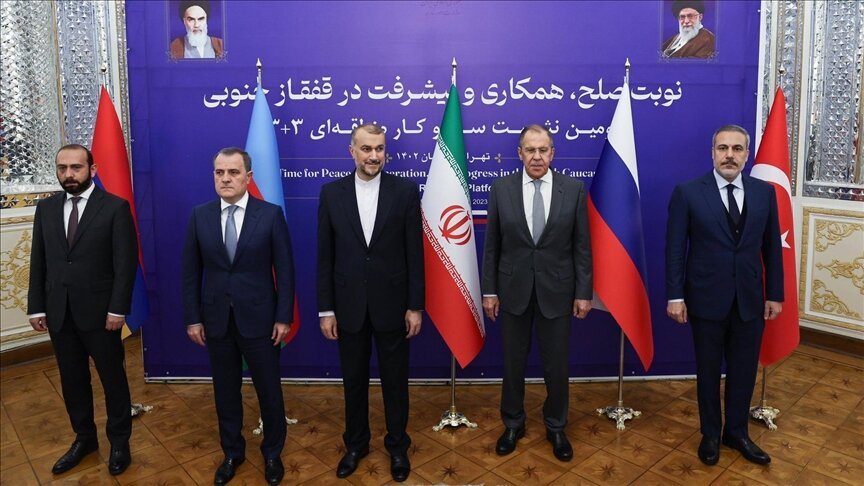‘Time for peace, cooperation, and progress in South Caucasus’: Iran FM

TEHRAN – Iran’s foreign minister on Monday said regional countries in the Caucasus now have a historic opportunity to move towards peace and cooperation as “the war in the South Caucasus is over”.
Hussein Amir Abdollahian made the remarks on Monday while hosting the foreign ministers of Armenia, Azerbaijan, Turkey and Russia in the Iranian capital of Tehran. The meeting, held as part of the 3+3 Format, is the second such ministerial gathering with the first one held in March of 2021.
“The title of this meeting is “Peace, Cooperation, and Progress in the South Caucasus,” which is held with the aim of utilizing the region’s capacities to resolve regional issues and make collective efforts to establish peace and cooperation for economic development and the promotion of the welfare of the people in the region. In this meeting, foreign ministers will have the opportunity to discuss bilateral relations and interactions with third parties, in addition to exchanging views on regional issues in the Caucasus,” said Iran’s top diplomat.
Amir Abdollahian also addressed the Israeli regime’s relentless bombardment of Gaza. “I feel it is necessary to express my deep concern about the great humanitarian tragedy currently unfolding in Gaza and Palestine. What is happening in Gaza is a war crime committed by the illegitimate Israeli regime against humanity. Any human being is affected by seeing the horrific scenes of the massacre of Palestinian women, children, and civilians,”.
The Iranian official also expressed hope that Georgia can show a “constructive” and “effective” participation in the upcoming meetings of the format. Georgia has not taken part in the last two 3+3 meetings.
The 3+3 cooperation format comprises the three countries of Armenia, Georgia, and Azerbaijan in the South Caucasus, along with Russia, Turkey, and Iran. A key objective of this regional group is to address the challenges within the region, aiming to find solutions independently without external interference from Western and other non-regional countries.
Monday’s meeting came after an almost three-decade-long conflict came to an end between Armenia and Azerbaijan over the Nagorno-Karabakh region. Baku recently took control of the entire area, which is officially part of Azerbaijan but has been inhabited by a predominantly Armenian population for hundreds of years.
